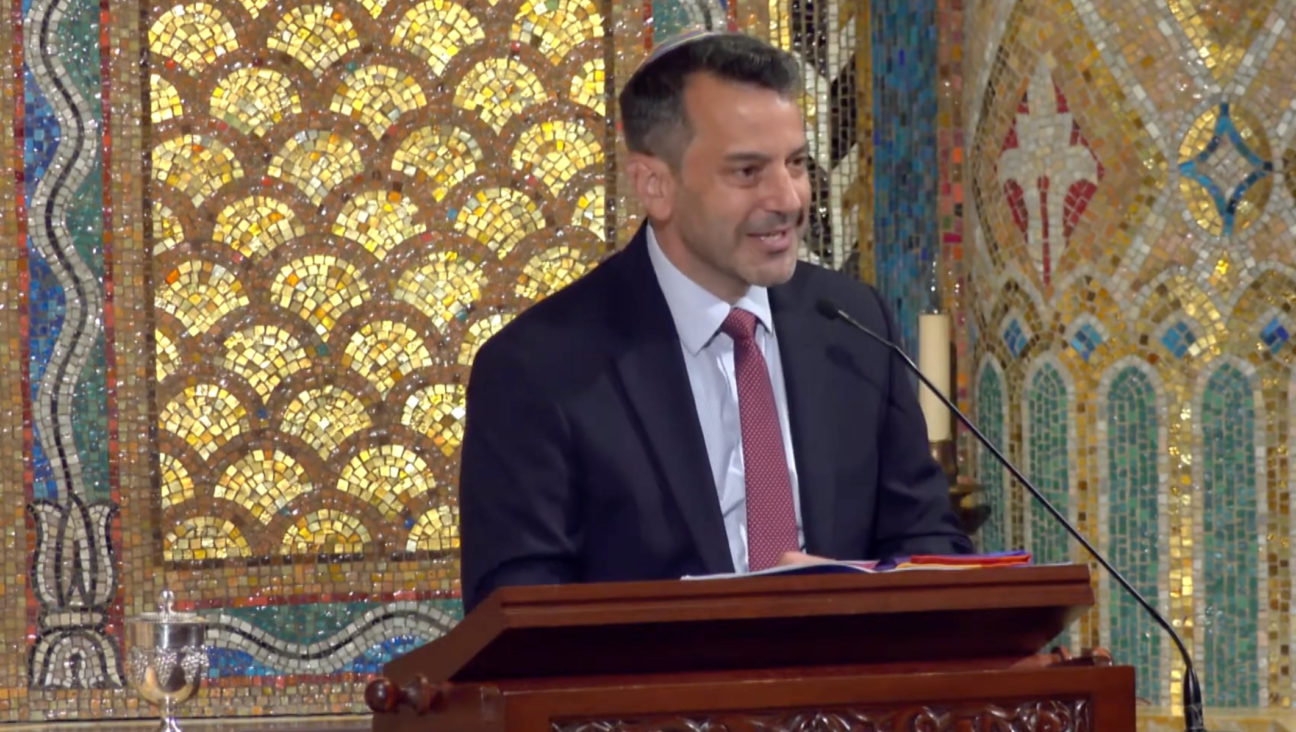Israel’s School Lunches May Get a MObama-Style Makeover

Image by Thinkstock
One of the signatures of modern Israeli cuisine is fresh, flavorful food made with fruits and vegetables that grow almost year round in the country’s temperate Mediterranean climate. So, it might be a bit surprising to learn that Israeli kids are eating school lunches that are as lacking in freshness and good nutrition as some of the worst American school lunches.
Armed with examples of fixes for the problem, like First Lady Michelle Obama’s Let’s Move initiative and British celebrity chef Jamie Oliver’s Food Revolution campaign, Jerusalem City Councilmember Rachel Azaria is leading the fight for healthier school lunches in her city and throughout Israel.
“We’ve been working on this behind the scenes for a long time,” Azaria recently told The Forward by phone about her efforts together with other parents involved in the Yerushalmim (Jerusalemites) political and social activist group. “But in late 2012 we turned it into a real campaign and we are demanding that the Education Ministry address this important issue,” she continued.
In the past, the provision of lunches for children staying for an extended school day was privatized. However, with the Trachtenberg Laws that resulted from the summer 2011 social protests, the responsibility for paying for and providing this food now resides with the Education Ministry.
Azaria’s group is demanding that the high-fat, high-carb and high-salt meals of fried shnitzel (think chicken nuggets), pasta, corn and peas commonly served in most schools be replaced with healthier ones that include lean proteins and fresh fruits and vegetables. “Everyone knows that fresh fruits and vegetables are inexpensive here, and that it is no big deal to cut them up into a salad,” the councilmember said.
Azaria and her fellow activist parents have gained support for the initiative from a couple thousand parents so far by circulating petitions, staging demonstrations and launching a Facebook campaign. But, in many ways, the biggest challenge has been in educating parents, many of whom are satisfied so long as their children are happy to eat the lunches currently served.
“We’ve got pediatricians, nutritionists and dieticians on our side helping to explain to politicians and parents that Israelis have been rapidly gaining weight, that we have an obesity problem in our society, as well,” Azaria said. “People begin to understand when we bring them the results of the analysis we had done on the current school lunches. The food is highly processed and loaded with oil and sugar. The salt content in a single meal is equivalent to the amount a child should have in two days.”
Azaria is buoyed by the fact that parents’ groups from around the country are joining in on the campaign. It’s still early in the process of making change, though. “We’re not even at the point of discussing costs or other specifics with the Education Ministry. Awareness is the main issue now,” Azaria said. But, “The solutions are not complicated.”
A message from our Publisher & CEO Rachel Fishman Feddersen

I hope you appreciated this article. Before you go, I’d like to ask you to please support the Forward’s award-winning, nonprofit journalism so that we can be prepared for whatever news 2025 brings.
At a time when other newsrooms are closing or cutting back, the Forward has removed its paywall and invested additional resources to report on the ground from Israel and around the U.S. on the impact of the war, rising antisemitism and polarized discourse.
Readers like you make it all possible. Support our work by becoming a Forward Member and connect with our journalism and your community.
— Rachel Fishman Feddersen, Publisher and CEO























